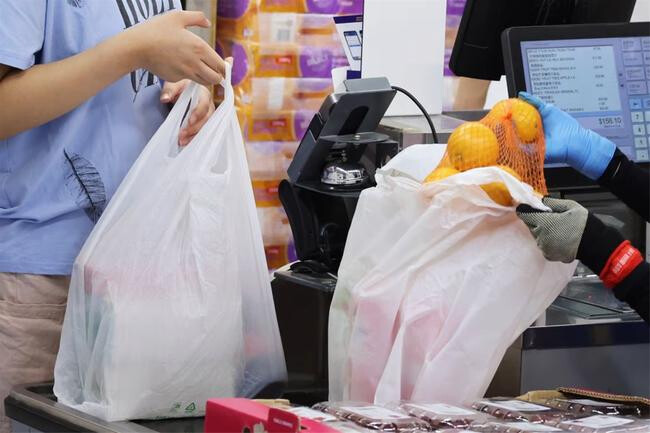
Vermont's plastic bag ban, implemented in 2020, has achieved remarkable success, opening new horizons for environmental policy. Recent research indicates that plastic bag usage in Vermont has plummeted by an astonishing 91% since the law's enactment. This stands as a testament to a successful policy that has driven changes in consumer behavior and made a tangible contribution to environmental protection.
Background and Key Provisions of the Legislation
On July 1, 2020, Vermont enacted Act 104, a statewide ban prohibiting retailers from providing single-use plastic bags to customers. This legislation was steadily implemented despite the chaos caused by the COVID-19 pandemic, demonstrating Vermont's strong commitment to environmental protection. The core provisions of the law are as follows:
Complete ban on plastic bags: All stores, including grocery stores and retailers, are prohibited from providing single-use plastic bags.
Paid paper bags: Paper bags can only be provided for a fee, with a minimum charge of 10 cents (approximately 130 KRW). This aims to encourage consumers to use reusable bags instead of paper ones.
Promotion of reusable bags: The state government actively encouraged residents to use reusable bags, such as shopping bags, through various campaigns even before the law went into effect.
This legislation was pursued as part of Vermont's efforts to proactively address plastic pollution and establish a sustainable consumption culture. Notably, a "bottom-up," resident-led legislative movement significantly influenced the bill's passage. This suggests that policies are more effective when they originate from the practical needs and consensus of residents.
The Astonishing 91% Reduction and Analysis of Its Causes
The University of Vermont's Center for Rural Studies conducted an in-depth survey of 745 Vermont residents to thoroughly analyze the law's effectiveness. The study revealed that plastic bag usage decreased by 91% after the law's implementation, while paper bag usage increased by only a modest 6%. This indicates that the plastic bag ban itself, rather than the 10-cent increase in paper bag prices, had the most significant impact on consumer behavior.
Wang Qunbin, a professor at the University of Vermont's College of Agriculture and Life Sciences, explained, "We wanted to know how much the plastic bag ban actually impacted," emphasizing the significance of this study in scientifically proving the policy's real-world effects. The researchers attributed Vermont's success to three main factors:
Simple and clear policy: The law's content was straightforward and clear, making it easy for residents to understand and follow.
Resident-led legislation: Residents' commitment to environmental protection was a crucial driving force behind the policy's creation, leading to high public acceptance.
Prior publicity and ample communication: Sufficient publicity and education before the law's implementation allowed residents time to prepare for and adapt to the changes. The state government actively promoted the law's content and encouraged the use of reusable bags through its website, social media, and local events.
Respondents adapted to the new policy in various ways. While some continued to use paid paper bags, a significant number switched to reusable bags to save money and protect the environment. Notably, many residents had already habitually used reusable bags even before the law took effect, highlighting Vermont's high level of environmental awareness.
Environmental and Economic Impact, and Implications
Vermont's plastic bag ban goes beyond mere regulation. It offers a practical solution to the plastic pollution problem and demonstrates its potential for positive impact on other communities.
Environmental effects: Reduced plastic bag use brings various environmental benefits, including preventing marine ecosystem pollution, reducing landfill waste, and curbing microplastic generation. Plastic bags take hundreds of years to decompose and have been identified as a major cause of soil and water pollution.
Economic effects: In the long term, it can reduce the costs of plastic bag production and disposal and contribute to the revitalization of the reusable bag market.
Changes in consumer perception: The policy raises consumer awareness about single-use items and serves as an opportunity to foster environmentally friendly consumption habits.
This study is particularly noteworthy for confirming both the policy's effectiveness and public support. Published in the Journal of Environmental Economics and Policy Studies, this research provides valuable insights for other states considering similar policies in the future. The researchers advise that an integrated strategy managing both plastic and paper bags is necessary, emphasizing the importance of banning plastic bags and providing sustainable alternatives.
Vermont's success story is strong evidence that environmental protection policies can successfully take root with public participation and support. As global awareness of plastic pollution grows, this is expected to be a significant milestone in finding practical solutions. We hope that more regions will benchmark Vermont's successful model to expand efforts toward a sustainable future.
[Copyright (c) Global Economic Times. All Rights Reserved.]






























